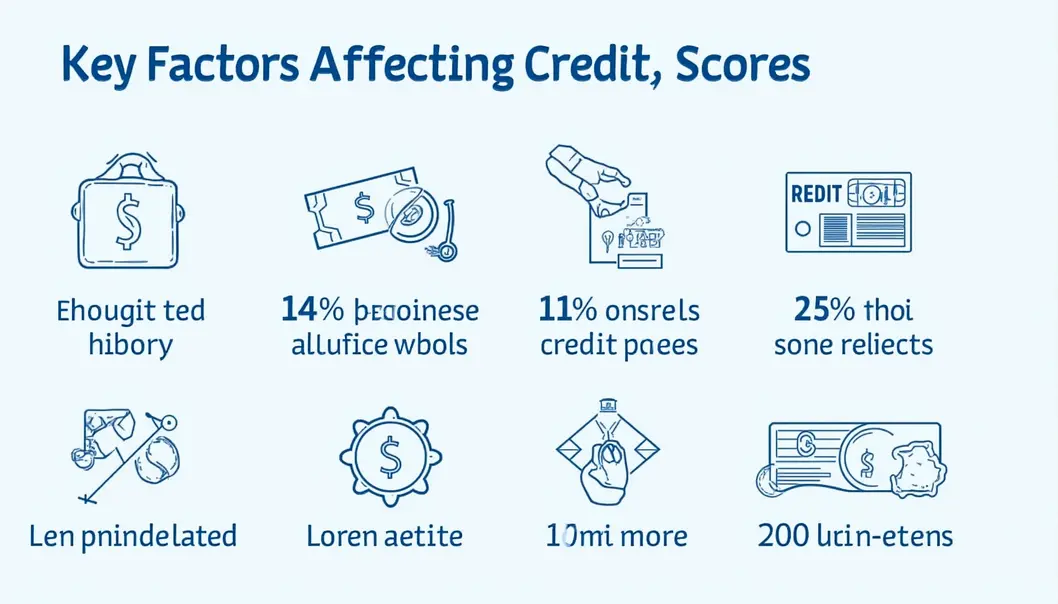Understanding your credit report and score is vital for families striving to maintain financial well-being and achieve their goals. Your credit report is a comprehensive reflection of your borrowing history, while your credit score serves as a numeric summary used by lenders to assess risk in lending. Families should recognize how different factors impact these elements and how they can manage them over time. This narrative explores the key factors affecting your credit report and score, empowering families to take charge of their financial futures. By educating themselves, families can make informed decisions when applying for loans, be it for a home, a car, or essential expenditures, ensuring a smoother financial journey.
Demystifying the Key Factors Influencing Your Credit Report and Score
Understanding your credit report and score is crucial in navigating the financial landscape. Central to this understanding are the factors that contribute to your credit score, which plays a vital role in determining your creditworthiness. The FICO score, the most widely adopted credit scoring model, summarizes your credit history and defines how likely you are to repay borrowed money. Let’s delve into the essential elements that influence your credit report and score.
The foremost factor affecting your score is Payment History, which constitutes a significant 35% of the FICO score calculation. This portion reflects your track record of making timely payments on debts such as credit cards, mortgages, and various loans. Consistent payment behavior enhances your score, while late payments or defaults can result in considerable drops in your score. Therefore, prioritizing timely payments is non-negotiable for anyone looking to maintain or improve their creditworthiness.
Following closely is Amounts Owed, commonly referred to as Credit Utilization, which accounts for 30% of your score. This factor evaluates the ratio of your current credit balances to your total credit limits. A general guideline is to keep this ratio below 30%. High utilization can signal to lenders that you may be over-reliant on credit, posing a risk to your financial stability. Conversely, lower utilization strengthens your profile, making it crucial to manage credit responsibly and avoid maxing out your accounts.
Third in significance is the Length of Credit History, responsible for 15% of your score. This aspect considers the age of your credit accounts and the duration since your oldest account was opened. A more extended credit history provides a more comprehensive view of your repayment habits, which helps lenders gauge your experience and reliability in managing credit. Aiming for longevity with your credit accounts, such as keeping older credit cards open, can positively impact this aspect of your score.
Another crucial component is Credit Mix, accounting for 10% of the total score. Lenders generally favor borrowers who can demonstrate their ability to handle various types of credit responsibly. This includes a combination of revolving accounts (like credit cards) and installment loans (like mortgages and car loans). A diverse credit mix can enhance your score, showcasing your versatility in managing different debts.
Rounding out the elements is the factor of New Credit, which includes the number of recently opened accounts and soft or hard inquiries into your credit report, contributing another 10%. Frequent credit applications or multiple new accounts within a short timeframe can signal riskiness to lenders, resulting in a drop in your credit score. Each inquiry indicates that you are seeking new credit, and a higher number might trigger concerns regarding your financial stability. Therefore, it’s wise to space out credit applications to help maintain your score.
Beyond these primary factors, it’s essential to recognize that other elements may indirectly influence your eligibility for credit but do not affect the numerical score itself. For instance, some lenders may consider your income levels, job stability, and overall financial behavior when evaluating credit applications. While these additional considerations don’t modify your credit score, they can affect lenders’ approvals and terms based on their risk assessment.
Moreover, while your payment history usually doesn’t account for rent, utility bills, or cell phone payments, these can appear on your credit report if they are sent to collections. Awareness of what comprises your credit report empowers consumers to take preemptive action in managing their finances. Regularly monitoring your report not only helps identify inaccuracies but also positions you better to address any discrepancies that could negatively impact your score.
By understanding the weighted factors of your credit report, you’re better equipped to make informed financial decisions. Maintaining a strong credit profile enables you to access benefits such as lower interest rates on loans, favorable mortgage terms, and the potential for higher credit limits. Moreover, many landlords review credit scores during rental applications, making a solid credit history advantageous in various aspects of life.
In summary, comprehending the interplay of these factors—Payment History, Amounts Owed, Length of Credit History, Credit Mix, and New Credit—grants insight into how you can intentionally shape your credit report. From ensuring timely payments to managing your credit utilization, a proactive approach to these elements fosters financial independence and resilience. With concerted efforts, improving your creditworthiness is achievable, ultimately enabling you to secure better opportunities for borrowing and building a stable financial future.
Final thoughts
By grasping the nuances of your credit report and score, you empower your family to make strategic financial choices. Stay informed and proactive to maintain a strong credit profile.
Subscribe for more tips on financial literacy
Learn more: https://savemawallet.com
About us
Try our budgeting tools to manage your family’s finances effectively and make informed decisions towards your financial goals.


Leave a Reply
You must be logged in to post a comment.